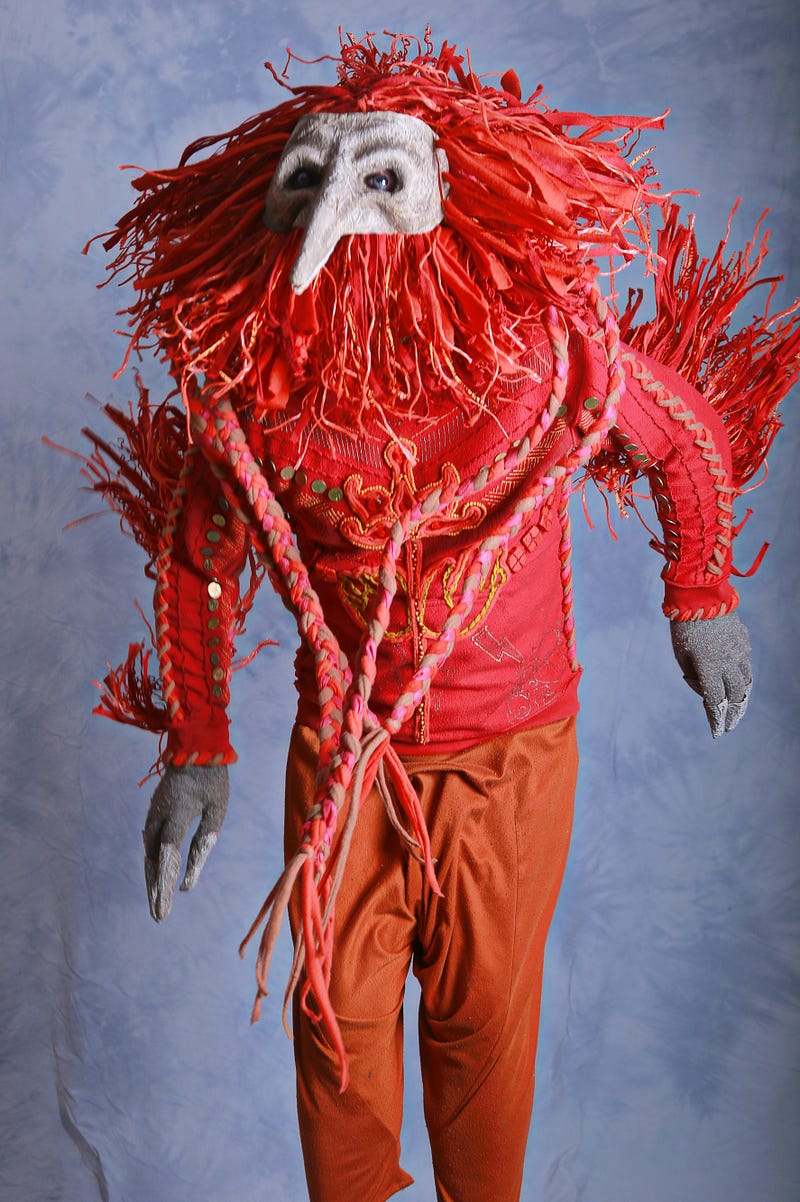6 Gifts From The Noble Trickster
The world of plant spirit medicine

In my work in the Mystic’s Academy Courses I often speak of the Noble Trickster (NT). This is a person with a clear and noble goal who bends, shifts, and recreates the rules of normal behavior to achieve that goal.
Tricksters exist throughout folklore. In later folklore, the trickster/clown is incarnated as a clever, mischievous man or creature, who tries to survive the dangers and challenges of the world using trickery and deceit as a defense. The Noble Trickster transcends all this.
It has been suggested that the word “trickster” was initially used in the context of this unusual way of thinking and acting by Daniel G. Brinton in 1885. Brinton (May 13, 1837 — July 31, 1899) was an American archeologist, ethnologist, anarchist, and proponent of unconventional ideas of the nature of racial identity.
Of course, the idea of the trickster is nothing new. Since ancient times, civilizations have been labeling the symptoms that are atypical of traditional human behavior in one way or another. These behaviors fit what in some cultures might be called a shaman, a curandero, a mystic, an oracle, a court jester, a magician, a medicine man, a madman, a lunatic, a poet, beatnik, and a sociopath.
Let’s begin a simple exploration of some of what you may be presented with as you move forward, in the world of the NT.
In the early days of the Mystic journey one may be drawn to various co-dependent patterns. From a sense of love and compassion they may attempt to reduce the struggle and suffering of others, especially those who the Mystic and Noble Trickster (NT) can connect to empathetically. This is especially so if they can sense exactly what this individual needs to do to reduce their struggle and suffering.
When the NT can feel the pain of another the experience may even become unbearable. The NT may seek ways to change the energies of those who are suffering.
In time the NT will come to the realization that we cannot cannot change another, even if we know exactly what could be done to make their lives easier. Ultimately we can only change ourselves, which in turn has a ripple effect on others. There is a saying in the sacred ayurvedic texts ‘if you want to change the world, change yourself’. This is true on many levels. Some people can be naturally repelled by the presence and compassionate actions of a NT even though the NT has done nothing wrong to them. They may attack the NT via their thoughts or behind their back. Usually the NT can still feel when this is taking place and will feel emotional pain because of it.
What is the NT to do? It is so difficult to feel other people’s pain and stand by and do nothing.
“For the being who is at peace with itself, survival may be of trivial concern.”
― Tom Robbins, Another Roadside Attraction
With maturity the NT learns over and over again that they cannot take another person’s pain away, it is there for that person to learn and grow from. A NT must do what they were meant to do while protecting themselves from other people’s energy. The last thing they need is transference and the experience of another’s pain. It is fine to help someone help themselves if they ask for your help.
Ultimately the best thing a NT can do as they pass through life is catch a sense of what normal and ordinary speaking and behavior looks like and mirror it.
In Western culture if a NT crosses paths with a stranger who is pain (or not) the best thin to do is give them the brightest heart-felt smile you can.
It is amazing just how much this will touch the soul.
- extremely sensitive,
- have an incredibly low pain threshold,
- feel pain for no reason at all,
- sometimes feel the pain friends are feeling,
- They become uncomfortable of self-invovled individuals and narcissists or anyone who puts themselves first without care for other’s feelings,
- Become uncomfortable around angry people, loud voices, etc.
The Takeway
Even from an early age NTs know they are different than most other people. They can see and notice things that most people don’t especially at that age. They can feel emotions very strongly can listen very well and can make the people around them happy as there are. Though they only have a few very close friends they have a deep connection to them. Often they feel like outsiders even with other outsiders and may go through much suffering as a child. Their parents are often overwhelmed and aren’t sure what to do with them. They may be shy or hyperactive and often don’t understand things. Male NTs tend to connect well with women. They also draw law enforcement to them but usually in a positive way. They are driven by their emotions but have a strong sense of boundaries and how to erect them when necessary. They can exude confidence when it is necessary but otherwise seem quiet and humble.
This story is an excerpt from my course “The Mystic’s Academy”
©Lewis Harrison, all rights reserved.
Before you go…
I am Lewis Harrison, a successful entrepreneur, and advisor to philanthropists. I am also the award-winning author of over twenty books on business, leadership, personal growth, and strategic thinking. I offer programs, courses, and coaching. I also teach seminars and speak on personal development, and life strategies. Reach out to me at askLewis.com
Here are a few stories in a similar vein:
@runaheilung
@LewisCoaches:
